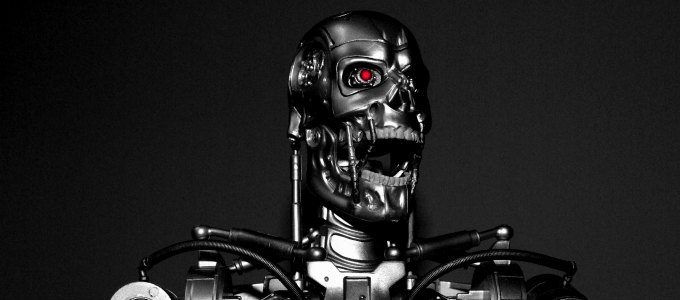- BUDDY PASS NOW AVAILABLE on CLO Symposium Registration, CLO Accelerator Enrollment and Membership.
- BUDDY PASS NOW AVAILABLE on CLO Symposium Registration, CLO Accelerator Enrollment and Membership.
- BUDDY PASS NOW AVAILABLE on CLO Symposium Registration, CLO Accelerator Enrollment and Membership.
- BUDDY PASS NOW AVAILABLE on CLO Symposium Registration, CLO Accelerator Enrollment and Membership.

The Robots Are Coming
More companies are deploying technology, linked with individual data on past consumption, to tailor learning experiences to the individual and predict what types of content they might need and when they need it. More companies are deploying technology, linked with individual data on past consumption, to tailor learning experiences to the individual and predict what…

When Watson, a computer system developed by IBM, went on “Jeopardy!” in 2011 and defeated two of the game show’s best contestants, former champion Ken Jennings quipped, “I, for one, welcome our new computer overlords.”
It was a light-hearted joke that nevertheless made a serious point. Computers are making inroads into areas long-thought implausible, moving from simple data processors to complex thinking machines capable of outdueling humans.
It’s a trend that has only accelerated in the past four years. In his book, “The Rise of the Robots,” author and tech firm founder Martin Ford makes the case that machine-based automation is posing a threat not just to workers with little education and lower-level skills but also highly skilled professional jobs such as lawyers, doctors, scientists and journalists.
They’re coming for you, too, learning leaders. More companies are deploying technology, linked with individual data on past consumption, to tailor learning experiences to the individual and predict what types of content they might need and when they need it.
The trend is inexorable and exponential. According to Moore’s Law, a concept coined by Intel co-founder Gordon Moore, computing power doubles approximately every two years. That’s how we’ve gone from dish-sized floppy disks with just over 1 megabyte of data storage capability to minuscule thumb drives that can hold hundreds of gigabytes.
That, in turn, has spurred enormous growth in electronics and computing. Most of us have in our pockets a device that is able to do more and do it faster than a room-sized mainframe computer could do a few decades ago. Couple that with the expansion of wireless technology and mobile data networks and you have a brave new world of technology-enabled living.
From a learning standpoint, more content becomes available every day via a wide array of platforms. With the click of a mouse or the swipe of a finger, we can summon a virtual army of the world’s leading experts to serve our individual needs.
This embarrassment of riches has slowly but inevitably eroded the need to create your own courses, curriculum and content, especially as predictive analytical tools allow it to be delivered directly with sometimes startling accuracy.
Given this dizzying advance, it’s easy to think that we’re approaching the end of corporate learning as we know it. Why develop training courses when somebody else has already done it cheaper and potentially better? A set of clearly defined job skills can be easily mapped to vetted learning content to provide an automated and tailored development experience.
In the not-too-distant future, content creation might even be done by computer. Machines are already turning digital data into analog narrative, digesting market news, business transactions and sports scores and turning them into news stories. Pretty soon, they should be able to create learning content tailored in real time to your organization’s specific needs.
Welcome to the digital future, where learning by automation replaces learning by people. Just as robots have replaced workers on the factory floor, they are making corporate trainers and instructional designers obsolete.
Not so fast. While we undoubtedly live in a technology-enabled age, human experience remains messy. Computers are doing a growing list of complex tasks for us like driving cars, vacuuming our carpets while we’re away and beating the best of us on “Jeopardy!” But they’re not replacing humans.
As Fortune magazine senior editor Geoff Colvin writes in his recent book, “Humans Are Underrated,” the question to ask isn’t what machines can do. Rather, we should ask what tasks and activities do we demand people continue to do even if a machine can do it.
Goal setting and decision-making, for example, should remain the province of human beings. Where accountability is important, a human being should be responsible.
For CLOs, that’s significant. Leadership development and collaboration are rising to the top, and our investments in people should follow. That’s not a robot’s recommendation. It comes from a person.
The rise of automation will upend corporate learning as we know it.













